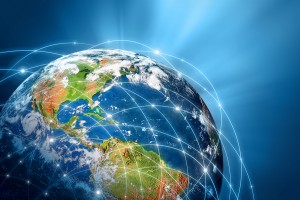The Internet of Things (IoT) is a scenario that will likely become a ubiquitous, everyday experience in the near future. This is a situation where people, animals or objects are given unique identifiers and the function of immediately transferring data over a network without needing human-to-human or human-to-computer interaction.
In other words, this kind of existence can be likened to a “Star Trek future.”
According to a new survey from SOASTA, a leading firm in cloud, mobile and web design testing, a majority of Americans have never heard of IoT, but once they are explained what it is most are excited for the future.
 The study found that 73 percent of Americans were unaware of IoT, but more than two-thirds (67 percent) conceded that they were excited about the future possibilities of IoT being used for consumer products once they were given an explanation of what it is exactly. Only six percent were very familiar of IoT.
The study found that 73 percent of Americans were unaware of IoT, but more than two-thirds (67 percent) conceded that they were excited about the future possibilities of IoT being used for consumer products once they were given an explanation of what it is exactly. Only six percent were very familiar of IoT.
Vehicles, smart home appliances, heart monitors, pet monitors and fitness devices were the top five applications of Internet-enabled consumer technology that excited the survey participants the most. Other consumer products included toys, drones, clothes, glasses, child monitors and sports equipment.
Furthermore, more than three-quarters (77 percent) believed that IoT can enhance any activity, while nearly half said IoT would help them remain healthy and assist in saving energy. Others also thought it would aid them in working out, dating, completing schoolwork and even babysitting.
“As our research shows, most Americans may be unfamiliar with the term ‘Internet of Things’ but they’re excited by the promise of the technology,” said Tom Lounibos, CEO of SOASTA, in a press release. “We’re already seeing that potential being realized by consumer technology companies with the advent of the smart home and the variety of connected fitness devices on the market today. We expect that IoT will accelerate the demand for innovation in the DevOps space. We’re already working with companies to test the strength of their IoT apps and sites to meet users’ high expectations.”
Study respondents were also asked what science-fiction story best represents the future introduction of technology. There were a wide variety of answers, but the five most popular responses were Star Trek, The Jetsons, Minority Report, 1984 and Her.
In April, we reported on a Pew Research study that people are optimistic about technological capabilities within the next half century. The report found that individuals think the future will contain humans controlling the weather, colonizing space, teleporting objects and transplanting lab-grown organs.
Essentially, the everyday experience for a human in 2064 would consist of wearable technology, flying vehicles and personal and commercial drone usage. However, this kind of technological advancement would create a negative society, according to a majority of Pew respondents.
The SOASTA online survey was conducted with 2,051 adults between May 28 and 30. It does not contain a margin of error because the data it could not be calculated due to the study not being based on a probability sample.



